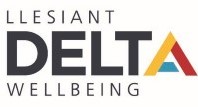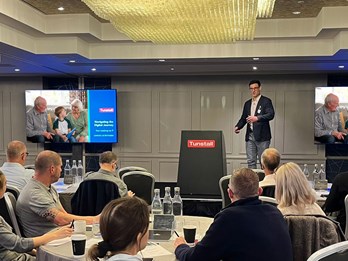Our model is truly pro-active, preventative and outcomes focused. TEC is key to our ambitions for transforming care and support. It makes a critical contribution to empowerment, self-management, independence and safety. It enables a model that means we can deliver regionally but with local implementation to provide consistency of approach, economies of scale and resources.
Samantha Watkins, Managing Director, Delta Wellbeing
The Challenge
The population of West Wales has a higher proportion of older people, a longer life expectancy and lower disability free life expectancy than the Welsh average, and it’s predicted that 44% of the population over 75 will have a limiting longterm illness by 2035.
How is the CONNECT project enabling a more proactive and preventative care model to improve outcomes for the people of West Wales?
What we did
The CONNECT project provides an enhanced lifeline and telecare service across Carmarthenshire, Pembrokeshire and Ceredigion. The pilot project has been funded by the Welsh Government’s Transformation Fund, enabling the West Wales Care Partnership Board - which brings together Carmarthenshire, Ceredigion and Pembrokeshire County Council’s, Hywel Dda University Health Board and representatives of the third and independent sector - to work together to help shape the future of health and social care services across west Wales.
The aim of the project, which is the first of its kind in Wales, is to support a prevention and early-intervention care system through pro-active wellbeing calls which can help identify any potential health and wellbeing issues at the earliest opportunity to ensure needs are supported accordingly, providing a specialist response service and via community-based support whenever individuals need it.
As part of the service, CONNECT also offers flexible support packages tailored towards an individual’s specific needs to help them live independently for as long as possible utilising the latest Technology Enabled Care (TEC).
About the Service
There are three key elements to the service:
• Providing the right support to help individuals to help themselves by focusing on their wellbeing.
• Providing help when it’s needed through early intervention to reduce the impact of ill health and help individuals regain their independence.
• Providing ongoing specialist help to continue promoting independent living to prevent a ‘potential’ crisis occurring and the impact this may have on an individual’s health and wellbeing
These elements are supported by:
TEC
CONNECT has a TEC first approach, meaning everyone receiving the service is assessed to establish whether TEC could benefit them as part of their care plan. Depending on the individual's needs, they may be offered a Lifeline and myAmie pendant to enable them to call for help in emergency, plus a rage of other sensors. This could include fall detectors, GPS tracking devices, door sensors, or medication dispensers, giving 24/7 support and peace of mind to the service user and their family all year round.
Proactive calling
The monitoring centre will make regular outbound calls to individuals, inline with their unique self-management plans. Those in need of more support will receive a higher number of calls than those who are more independent. Public health initiatives can also be communicated, e.g. in the winter people will be reminded about flu jabs. Staff can also call clients to wish them a happy birthday, or offer extra support in a crisis, such as at a time of bereavement. Prompts are placed on identified trigger areas. If any concerns are identified, the call handers have a number of different ways in which to practically support individuals in addition to traditional statutory care routes.
Well-being support
The team works with individuals to assess, co-design and review community-based stay well plans. These plans embrace current community-based provision as well as provide direct pathways to the specific interventions; loneliness, falls and carer stress. The plans are monitored through proactive calls and if any issues are identified via monitoring this team can be deployed to provide practical support.
Rapid Response Units
When crises occur, the 24/7 mobile service will respond to calls within 60 minutes to facilitate community-based solutions, avoiding inappropriate hospital admission or other medical referral wherever possible.
As a council we recognised the value of TEC a few years ago, and its potential to support the challenges our health and social care systems were facing, and so prioritised the transformation of the service. More recently it has been at the heart of our COVID response, enabling us to protect the 8,000 people shielding with proactive calling, food, medicine and practical, triaged support.
Councillor Jane Tremlett, Executive Board Member for Social Care and Health, Carmarthenshire County Council
Results
The programme is still in its early stages, but is focusing on outcomes that include:
• Use of statutory Social Care services
• Use of ambulance service
• Expedited hospital discharges
• Service user wellbeing - based on individual goals/perception
To date (January 2021), the service has:
• Assessed the needs of over 1800 people to develop a personalised support package to help them live independently at home
• Supported more than 8500 people required to shield during the first national lockdown – ensuring they had access to food, virtual social contact and emergency assistance
• Responded to 1646 call outs, with only 99 of these (6%) needing to be escalated to emergency services
• Sent rapid response community teams to help 529 people who had a fall at home – with 97% of all calls being attended to within 60 minutes
Download the full case study for more information on the pathway and to hear Nancy and Rex's story.





